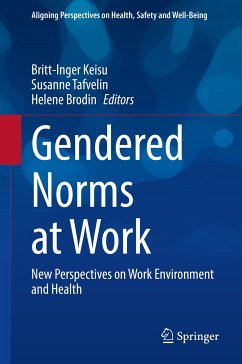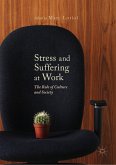This edited volume discusses how deeply entrenched gender norms in work environments, even in welfare economies, can affect women's health in an adverse way. The volume provides a broad overview of contributing factors. It derives specific answers from case studies in Sweden, a welfare state where women's labour market participation is very high, but where horizontal and vertical gender segregation in work is also one of the highest in the world. Women tend to work in occupations that are heavily dominated by women. An issue in women-dominated occupations is a considerably higher sickness absence than men, with the highest rates being in human service and care occupations. This volume adds to the literature on health and wellbeing in women-dominated professions and workplaces through studying the work environment, organizational changes, digitalization, threats, violence and conflict, and work conditions that could contribute to healthier workplaces for women. In addition, it pointsto the need for deeper gender analysis in work norms, and using both quantitative and qualitative approaches. It is of interest to social and behavioural scientists studying work, gender and health, as well as HR professionals and policy makers.
Dieser Download kann aus rechtlichen Gründen nur mit Rechnungsadresse in A, B, BG, CY, CZ, D, DK, EW, E, FIN, F, GR, HR, H, IRL, I, LT, L, LR, M, NL, PL, P, R, S, SLO, SK ausgeliefert werden.









